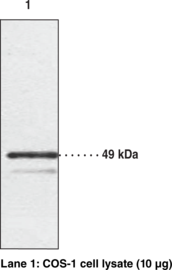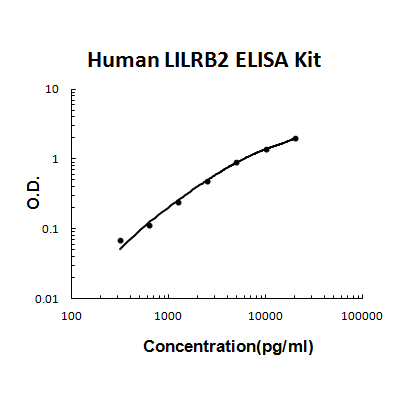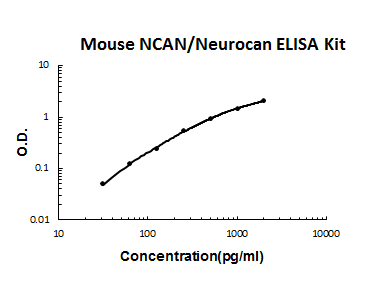Description
Immunogen: human CMKLR1 amino acids 358–371 • Host: rabbit • Cross Reactivity: (+) human, monkey, mouse, and rat CMKLR1 • Application(s): FC, IF, IHC, and WB • CMKLR1 is a GPCR relevant to the cellular chemotaxis of dendritic cells and macrophages. Chemerin, or TIG2, and Resolvin E1 are ligands for this receptor.
Synonyms: CMKLR1|DEZ|GPCR ChemR23|Resolvin E1 Receptor
Immunogen: Synthetic peptide from the C-terminal region of human CMKLR1
Formulation: 500 μl of peptide affinity-purified antibody
Isotype:
Applications: FC, IF, IHC, and WB
Origin: Animal/Rabbit
Stability: 365 days
Application|Flow Cytometry||Application|Immunofluorescence||Application|Immunohistochemistry||Application|Western Blot||Product Type|Antibodies|Polyclonal Antibodies||Research Area|Cardiovascular System|Kidney & Renal Disease||Research Area|Immunology & Inflammation|Inflammatory Lipid Mediators|Specialized Pro-Resolving Mediators||Research Area|Immunology & Inflammation|Innate Immunity



